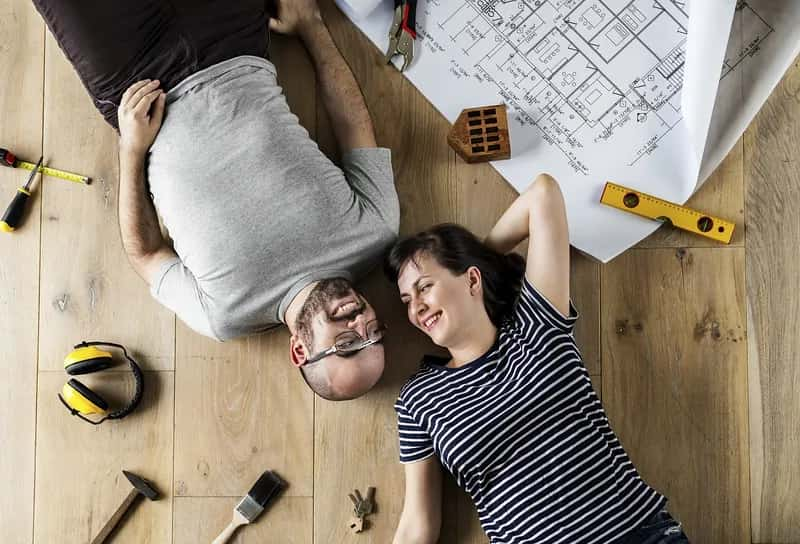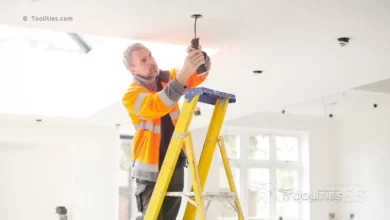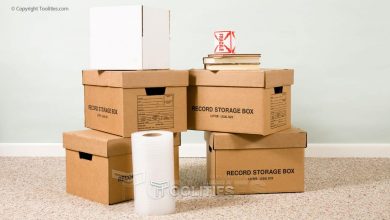Home Buying: Tips for First-time Home Buyers
Buying a home can be an exciting and overwhelming experience, especially if you are a first-time home buyer. With so many decisions to make and options to consider, it’s important to know the basics of home buying before getting started.
From understanding your budget and researching potential neighborhoods to negotiating with sellers and securing financing, there are numerous factors to consider when purchasing a home. Fortunately, there is plenty of information available to help guide you through the process. Here are some essential tips for first-time home buyers that will help make the process easier.
Table of Contents
- How do I save money for buying a house?
- What Is the Process of Buying a House?
- What Do I Need as a First-Time Home Buyer?
- How Much Should First-Time Home Buyers Budget?
- Home Buying: Tips for First-time Home Buyers
- #1. Make Sure You Are Financially Ready for a Home Loan
- #2. Get Pre-Approved for a Home Loan
- #3. Use Real Estate Apps to Look for Your Dream Home
- #4. Find the Right Real Estate Agent for You
- #5. Save Physical Copies of Your Home Buyer Paperwork
- #6. Make Sure You Budget for Home Maintenance
- #7. Don’t Forget Closing Costs
- #8. Mortgage selection tips
- #9. Explore Your Mortgage Options
- #10. Don’t Skip the Home Inspection
- Steps to Take When Buying Your First Home
- What You Should (and Shouldn't) Do When Buying a House
- Benefits of Being a First-Time Homebuyer
- Recap
How do I save money for buying a house?
To save money for buying a house, you'll need to start by saving for a down payment. The down payment is the initial amount of money you'll need to put towards the purchase of your home, and it's typically around 10% of the total purchase price. In addition to the down payment, you'll also need to save for closing costs, which are the fees associated with finalizing the purchase of your home.
Closing costs can range from 2-5% of the total purchase price and can include things like appraisal fees, loan origination fees, and title insurance. To get an estimate of how much you'll need to save for closing costs, you can talk to a real estate agent or lender. Once you have an idea of how much you'll need to save for both the down payment and closing costs, you can start setting aside money each month to reach your goal.
What Is the Process of Buying a House?

The process of buying a house may seem daunting, but it doesn't have to be. With the help of a experienced real estate agent and a mortgage specialist, you can navigate the process and be in your new home before you know it.
The first step is finding a real estate agent that you trust and who has experience in the type of home you're looking for. They will help you find homes that match your budget and needs. Once you've found a few homes you're interested in, it's time to start negotiating with the sellers. Your real estate agent will help you with this process.
Once you've found the perfect home, it's time to get financing. If you don't have the cash to pay for the home outright, you'll need to get a mortgage. A mortgage specialist will help you determine how much you can afford and what kind of loan is best for your situation.
Buying a house doesn't have to be stressful. With the help of a professional team, you can be in your dream home before you know it.
What Do I Need as a First-Time Home Buyer?
As a first-time home buyer, you may be wondering what you need in order to get started. The most important thing you need is a good real estate agent. A good agent will help you find the right home for your needs and budget.
Additionally, you will need to have a down payment saved up. The size of your down payment will depend on the type of loan you get. You will also need to be prepared to pay for closing costs, which are typically around 2-5% of the purchase price of the home.
How Much Should First-Time Home Buyers Budget?
First-time home buyers should budget for their mortgage payment, as well as other monthly costs associated with owning a home. The mortgage payment will be the biggest monthly expense, and will be based on the price of the home and the terms of the loan from the lender.
Other costs to consider include property taxes, homeowners insurance, and any HOA dues or other monthly fees. When budgeting for a new home, it is important to be realistic about all of the costs involved in order to avoid any financial surprises down the road.
Home Buying: Tips for First-time Home Buyers
Get the scoop on everything you need to know about buying a home for the first time. Our tips will help you make the right decisions and get the home of your dreams.
#1. Make Sure You Are Financially Ready for a Home Loan
When you are ready to buy a home, you will need to obtain a mortgage. A mortgage is a loan that is used to purchase a property. The loan is secured by the property itself, which means that if you default on the loan, the lender can foreclose on the property. The amount of the loan, as well as the interest rate, will be determined by your credit score and other factors.
The monthly payment on a mortgage is typically made up of three components: principal, interest, and property taxes. In addition to your monthly payment, you will also be responsible for paying closing costs when you close on the loan. Closing costs can include appraisal fees, title insurance, and origination fees.
#2. Get Pre-Approved for a Home Loan

A home loan is a loan that a buyer takes out to purchase a home. A mortgage is a type of home loan. A mortgage lender is a lender who provides mortgages. You can find a home by searching for homes online, in newspapers, or through real estate agents. Home sellers are people who sell homes.
#3. Use Real Estate Apps to Look for Your Dream Home
Real estate apps are a great way to find your dream home. You can search for the type of home you want and get results from all over the world. With these apps, you can find homes that match your budget and preferences.
#4. Find the Right Real Estate Agent for You
In order to find the right real estate agent for you, it is important to consider the housing market and what kind of help you need. A good agent will be able to provide you with information about the current market trends and help you make informed decisions about buying or selling a home. They will also be able to provide you with resources and referrals to other professionals, such as mortgage brokers or home inspectors.
#5. Save Physical Copies of Your Home Buyer Paperwork
As a home buyer, you'll have a lot of paperwork to keep track of throughout the purchasing process. Be sure to save physical copies of everything related to your home purchase, including any correspondence with your real estate agent, mortgage lender, and the seller. This will come in handy if you ever need to reference something down the road.
It's also a good idea to keep digital copies of your paperwork as well. This way, you can easily access it from anywhere, and you won't have to worry about losing anything.
#6. Make Sure You Budget for Home Maintenance
Home maintenance is important to keep your home in good condition. You should budget for home maintenance so you can keep up with repairs and inspections. A home inspection can help you identify problems early so you can fix them before they become bigger issues.
#7. Don’t Forget Closing Costs
Don't forget that you'll need to budget for closing costs when you're taking out a mortgage. These are the fees charged by your lender and usually include things like the property tax and appraisal. They can vary depending on the type of property you're buying and whether you're a first-time buyer, so it's important to ask your lender for an estimate of what they'll be before you start shopping for a home.
#8. Mortgage selection tips
Mortgage selection is an important process for any home buyer, but especially for first-time buyers. There are many factors to consider when choosing a mortgage, including the interest rate, monthly payment, and the terms of the loan. There are also first-time home buyer programs that can help with the down payment and closing costs.
It is important to get preapproved for a mortgage before making an offer on an expensive home. A preapproval letter from a lender shows that you are a serious buyer and can help you negotiate a better price on the home.
#9. Explore Your Mortgage Options
A mortgage is a loan used to finance the purchase of a property. There are many different types of mortgages available, and the one you choose will depend on your individual circumstances. If you are a first-time homebuyer, you may be eligible for certain programs that offer lower interest rates. It's important to explore all of your options before making a decision.
#10. Don’t Skip the Home Inspection

If you're buying a home, don't skip the home inspection. A home inspection is an important step in the home-buying process. It can help you identify problems with the property that you may not be able to see yourself.
A home inspection is typically done by a professional inspector. The inspector will look at the property's structure, systems, and finishes. They will also check for any safety hazards.
As a buyer, you should be present for the home inspection. This way, you can ask the inspector questions about their findings. You can also get a better understanding of what needs to be repaired or replaced.
If you're buying a home, don't skip the home inspection. It's an important step in the process that can help you identify any potential problems with the property
Steps to Take When Buying Your First Home

There are a few key steps to take when buying your first home. Firstly, you'll need to get preapproved for a mortgage from a lender. Your credit score will play a big factor in what interest rate you're offered, so it's important to try and keep it as high as possible.
Secondly, you'll need to decide what type of home you want to buy – whether that's a condo, townhouse or single-family dwelling. Once you've found the perfect property, be sure to get an estimate of the monthly mortgage payment and factor in additional costs like property taxes and insurance.
Finally, make sure you're comfortable with the available credit you have before signing on the dotted line. Congratulations – buying your first home is a huge accomplishment!
What You Should (and Shouldn't) Do When Buying a House
Buying a house is a huge decision, especially if you're a first-time homebuyer. There's a lot to think about, and it's important to do your research before beginning the home buying process.
You'll need to find a mortgage lender and a real estate agent that you trust, and you should ask lots of questions to make sure you understand everything. It's also important to be realistic about what you can afford, and to be prepared for unexpected costs.
Benefits of Being a First-Time Homebuyer
There are plenty of benefits that come with being a first-time homebuyer. For starters, as a first-time buyer, you may have access to special programs and incentives that can save you money. Additionally, buying a home is a great way to build equity and wealth over time. And, of course, there’s the pride and satisfaction that comes with owning your own home.
If you’re thinking about buying a home, be sure to talk to a lender to see what programs and incentives you may qualify for as a first-time buyer. And don’t forget to shop around for the best mortgage rate. With a little preparation and know-how, you can make the process of buying your first home smoother and more enjoyable.
Recap
Buying a home can be a stressful yet rewarding process. Use these tips to make the experience more enjoyable and less overwhelming. Start by researching your options, getting pre-approved for a loan, working with an experienced real estate agent, and asking lots of questions. Additionally, don’t forget to factor in closing costs and other expenses when creating your budget. Taking these steps will help you find the perfect home that fits both your needs and your financial situation.







I’d like to thank you for the efforts you’ve put in writing this blog. I am hoping to see the same high-grade blog posts from you later on as well. In truth, your creative writing abilities have motivated me to get my own, personal blog now 😉